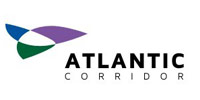- C-OSS - GENERAL INFORMATION
- PaP Offer and Path Request Management
- Path allocation on a pre-arranged path
- Reserve Capacity
- Temporary Capacity Restrictions
YOUR QUESTIONS
If you have further questions,please submit your questions by mail to
-
What is a Temporary Capacity Restriction?
Planned Temporary Capacity Restrictions
This term covers the earlier used ‘works’, ‘possessions’, ‘works and possessions’ and ‘capacity restrictions’. It indicates that the restrictions are planned (no force majeure restrictions) and temporary (no long-lasting bottle-necks).
Temporary capacity restrictions are necessary to keep the infrastructure and its equipment in good condition and to allow infrastructure development in accordance with market needs. Also having a negative impact on the rail network, however, the railway sector itself needs to stay competitive with other modes of transport, especially road transport. -
How may it affect my allocated capacity?
It affects the allocated capacity by the imposition of the work periods where the line operates only with degraded capacity, either by imposing limits to the normal operational conditions as described in the IM’s Network statement or even by blocking the train operation in the allocated paths during certain periods of the published Timetable. And thus affecting the contracted capacity.
-
How is the Corridor and the IMs working on minimizing its impacts on the RUs operation?
The RFCs have created the TCRs Coordination WG with the overall goal: The traffic has to flow! This can only be achieved if rail infrastructure is available at all times in adequate quality and quantity to facilitate traffic in line with customers’ needs. To plan traffic and communicate with end customers, reliable timetables are required which reflect these market needs.
This requirement is also reflected in the recast of Annex VII of the Directive 2012/34/EU, which came in to force in December 2017: It obliges IMs to coordinate TCRs between themselves, while also considering the needs of the Applicants. This is necessary to provide high-quality path offers.
To provide the sector with the required procedures, RNE has set up a TCR Working Group with the goal to create common coordination, consultation and publication processes regarding TCRs. The TCR Working Group (TCR WG) meets twice per year and serves as a platform for measures and projects (e.g. TCR Guidelines, TCR Tool, etc.) to create, implement and improve TCR process elements.
The working group consists of business experts from all Infrastructure Managers/Allocation Bodies and is supported by Railway Undertakings. As a first achievement, the TCR WG – together with representatives of RUs – has provided the TCR Guidelines for the complete network, covering all aspects of the recast Annex VII.







